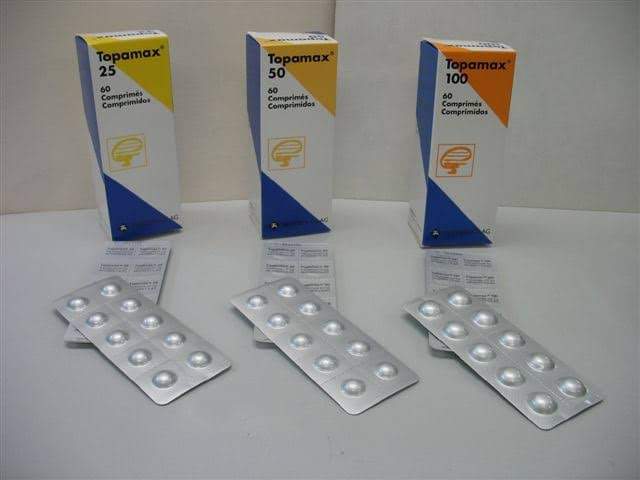What Are The Long Term Side Effects Of Topamax?

A long-term side effect refers to an effect (beneficial, harmful, or negligible) that appears months or years after starting or stopping the medicine. The medicine might have been taken for a short period of time yet several years later an unanticipated outcome might emerge. A medicine might be taken for a long time and the cumulative effect of long-term exposure might have consequences.
What Is Topamax And What Does It Treat?
Topamax is a brand of topiramate a medication that works in the brain and is sometimes used in patients with bipolar disorder (also known as manic depression). It is approved for the treatment of seizures (epilepsy) in adults and children in combination with other anticonvulsants and for preventing migraine headaches in adults. Bipolar disorder involves episodes of depression and/or mania.
Bipolar disorder requires long-term treatment. Do not stop taking Topamax even when you feel better. With input from you, your health care provider will assess how long you will need to take the medicine. Missing doses of Topamax may increase your risk for a relapse in your mood symptoms.
How Topamax works
Although the precise mechanism of action of Topamax is unknown, there is sufficient evidence to explain the drug’s anticonvulsant activity. Topamax blocks voltage-gated sodium channels, which most likely leads to control of sustained depolarizations during seizures. Topamax reduces membrane depolarization by AMPA/Kainate receptors. Topamax enhances GABA (A) receptor activity, which enhances inhibitory effects.
Topamax is a weak inhibitor of carbonic anhydrase; acidosis in the brain has partial protection against seizures by downregulating NMDA receptor activity. Overall, the effect of Topamax on these channels is the leading explanation of the antiepileptic action of the drug.
How Should I Take Topamax?
Topamax is usually taken one or two times a day with or without food.
Typically, patients begin at a low dose of medicine and the dose is increased slowly over several weeks.
The dose usually ranges from 25 mg to 400 mg. Only your health care provider can determine the correct dose for you.
Do not split or chew tablets as they have a bitter taste.
Sprinkle capsules: Swallow whole or sprinkle onto food, such as applesauce or pudding and eat immediately. Do not chew the sprinkle capsule or contents.
Extended-release capsules: Swallow whole. Do not sprinkle on food, chew, or crush capsule.
Use a calendar, pillbox, alarm clock, or cell phone alert to help you remember to take your medication. You may also ask a family member or a friend to remind you or check in with you to be sure you are taking your medication.
What Happens If I Miss A Dose Of Topamax?
If you miss a dose of Topamax, take it as soon as you remember, unless it is closer to the time of your next dose. Discuss this with your health care provider. Do not double your dose or take more than what is prescribed.
What Should I Avoid While Taking Topamax?
Avoid drinking alcohol or using illegal drugs while you are taking Topamax. They may decrease the benefits (e.g., worsen your symptoms) and increase adverse effects (e.g., sedation, dizziness).
What Happens If I Overdose With Topamax?
If an overdose occurs, call your doctor or 911. You may need urgent medical care. You may also contact the poison control center at 1-800-222-1222.
A specific treatment to reverse the effects of Topamax does not exist.
What Are The Possible Side Effects Of Topamax?
Common side effects
• Thinking problems: slow thoughts, trouble finding the right word, confusion, trouble concentrating
• Feel clumsy, unsteady, dizzy, tired, weak, or nervous
• Loss of appetite, change in the way food tastes, weight loss, stomach pain
• Numbness or tingling sensation in limbs and extremities
Rare/serious side effects
• Mood or behavior changes, such as aggression, agitation, apathy, irritability, and depression
• Hearing problems (ringing, buzzing, and decreased hearing)
• Fever, sore throat, upper respiratory infection
• Itching, nosebleeds, pale skin, blisters, allergy (skin rash, swelling, troubled breathing), yellow eyes or skin, easy bruising, and bleeding
• Topamax may cause eye problems. Serious eye problems include a sudden decrease in vision with or without pain/redness and increased pressure in the eye. These eye problems can lead to permanent vision loss if not treated.
• Serious skin reactions (Stevens-Johnson Syndrome) have been reported with the use of Topamax. At the first sign of a rash, Topamax should be discontinued unless the rash is clearly not drug-related.
• Topamax may cause decreased sweating and increased body temperature. People, especially children, should be watched for signs of this — especially in hot climates. Some people may need to be hospitalized for this condition.
• Topamax can increase the level of acid in your blood (metabolic acidosis). If left untreated, metabolic acidosis can cause brittle or soft bones, kidney stones, can slow the rate of growth in children, and may possibly harm your baby if you are pregnant. Metabolic acidosis can happen with or without symptoms. Sometimes people with metabolic acidosis will feel tired, not feel hungry, feel changes in heartbeat, or have trouble thinking clearly.
• Studies have found that individuals who take antiepileptic medications, including Topamax, have suicidal thoughts or behaviors up to twice as often as individuals who take placebo (inactive medication). These thoughts or behaviors occurred in approximately 1 in 500 patients taking the antiepileptic class of medications.
How Long Can You Stay On Topamax?
Generally, it can take 2 to 3 months for Topamax to fully work. Once your condition is under control, you’ll usually need to keep taking Topamax for many years. Is it safe to take long term? Yes, many people take Topamax safely for many months or years.

What Are The Risks Associated With Taking Topamax For Long Periods Of Time?
Studies have shown that the long-term use of Topamax can cause the formation of Kidney stones (also called renal calculi, nephrolithiasis, or urolithiasis) which are hard deposits made of minerals and salts that form inside your kidneys. Complications include acute renal failure secondary to obstruction, anuria, urinary tract infection with renal obstruction, and sepsis.
As a result, blood testing for acid-base balance, urinary pH, and citrates is recommended in patients suffering from kidney stones.
Other side effects associated with the use of this drug for a long period of time are not permanent and go away with time. For example, fatigue (low energy) and feelings of burning or numbness in your hands and feet may go away as you continue taking Topamax.





